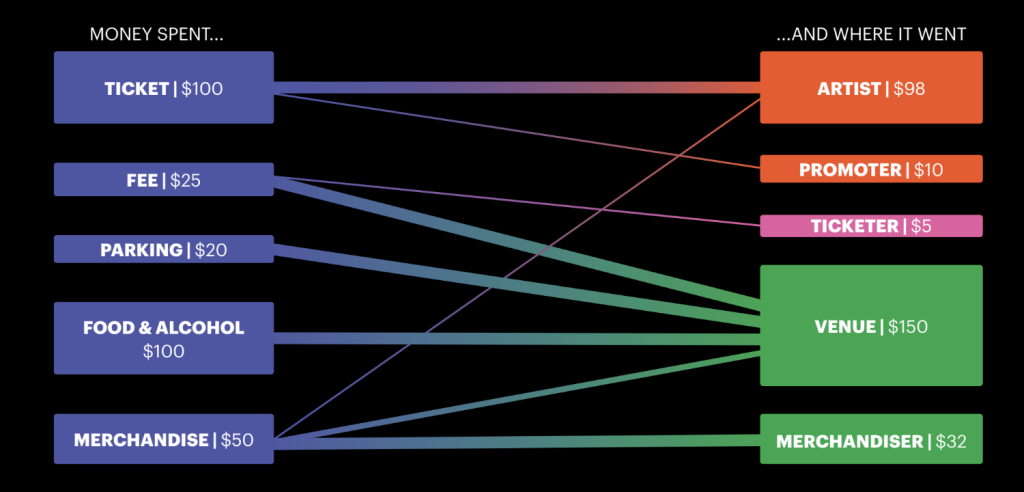
How Payment Platforms Should Handle Live Concert Ticketing Splits
Concert revenue splits and ticket sales create complex payment distributions among multiple stakeholders. Here's how modern payment platforms handle these intricate transactions.

Concert orchestra performing with choir onstage
Revenue Distribution Breakdown:
Artists receive income from:
- Initial ticket sales
- Merchandise sales at shows
Promoters earn from:
- Initial ticket value only
Venues collect revenue from:
- Ticket sale fees
- Parking fees
- Food and beverage sales

Concert revenue distribution and payment flow
Modern Payment Solutions
Automated payment systems now manage these complex distributions by:
- Processing percentage-based payouts to multiple parties
- Tracking sales across all revenue streams
- Managing predetermined variables (contracts, fees, taxes)
- Consolidating transactions into a unified system
Compliance Requirements
Effective payment platforms must include:
- Anti-money laundering screening
- Tax compliance across multiple countries
- Fraud detection systems
- Automated tax form collection and validation
- Transaction monitoring
- International blacklist screening
These systems ensure proper revenue distribution while maintaining compliance across 190 countries, preventing penalties and overpayments while streamlining the entire payment process for all stakeholders involved in live concert events.
Related Articles
Spotify Stock Shows Resilience in Market Downturn - Analysts See SPOT as Safe Harbor
